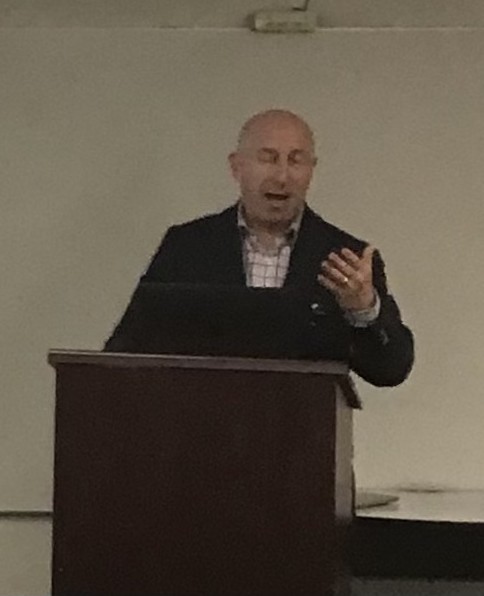Educational Impact Grant
Educators and other school staff routinely develop creative programs to enhance students’ educational experiences. Often these programs require funding that is not available in the annual school budget. In order to support these innovative endeavors, the Wallingford Education Foundation (WEF) awards funds based on specific requests. Educational Impact Grants typically range from $500 – $5,000. These grants comply with school district guidelines and are intended to provide:
Educational opportunities for students that are not available within current district budget constraints. These may be curricular or extra-curricular.
New initiatives that enhance the educational mission of the schools through collaborative partnerships with the community.
Matching dollars when external grants require the inclusion of local matching funds. Matching grant requests must be related to the above two areas of WEF funding.
Wallingford staff members (any employee of Wallingford Public Schools) who wish to request financing are asked to complete an application and submit it to the WEF via email anytime between March 1 and 4:00 p.m. on April 1. Applicants are urged to read the entire application packet carefully and to pay particular attention to all terms and conditions.
Thanks to an Educational Impact Grant award, these professionals are able to turn their ideas into reality:

Lisa Carlson (Rock Hill Elementary School) received full funding to implement the Eagle’s Nest. This innovative project is designed to address the growing social-emotional and mental health needs of students while fostering leadership and reinforcing positive behavior. This space will aid in the development of well-rounded, confident, and emotionally healthy learners. She is pictured with members of Rock Hill’s Student Success Team.

Elizabeth Dante and Michele Guglielmo (Parker Farms Elementary School) received funding to strengthen and grow the school’s chess club. They will be able to equip classrooms with chess sets for students to use during recess and provide the school’s library media center with chess board games that students can borrow for use at home as well as purchase other items needed by the club. Studies have shown that playing chess can increase IQ, improve critical thinking skills, improve reading skills, help children to retain information, increase concentration and memory, and promote problem solving abilities. Through playing chess, students will also learn how to remain calm under pressure, socialize with peers in a respectful way, and practice having good sportsmanship.

Melissa Dorish (Pond Hill Elementary School) received a grant to purchase musical instruments and sound-related materials for two afterschool courses – Sounds Fun and Advanced Sounds Fun. These hands-on courses are designed to teach students about the scientific concepts of sound as well as how music, tones, and vibrations can help reduce stress and promote relaxation.

Ryan Heath and Kristina Waldron (Parker Farms Elementary School) were provided funding through an educational impact grant from the Wallingford Education Foundation to expand its student-centered, school news broadcast through the purchase of mobile broadcasting equipment. This will allow the student news reporters to move about the school to cover stories in classrooms as well as outdoor activities. Creating and broadcasting news stories encompasses all aspects of language arts, including reading, writing, speaking, and listening. It also provides opportunities for teamwork and leadership.
The Wallingford Education Foundation was pleased to present over $13,000 in educational impact grant awards that funded projects and events implemented during the period May 2024 through June 2025. Please continue reading to learn more about these activities that will continue past their implementation year.
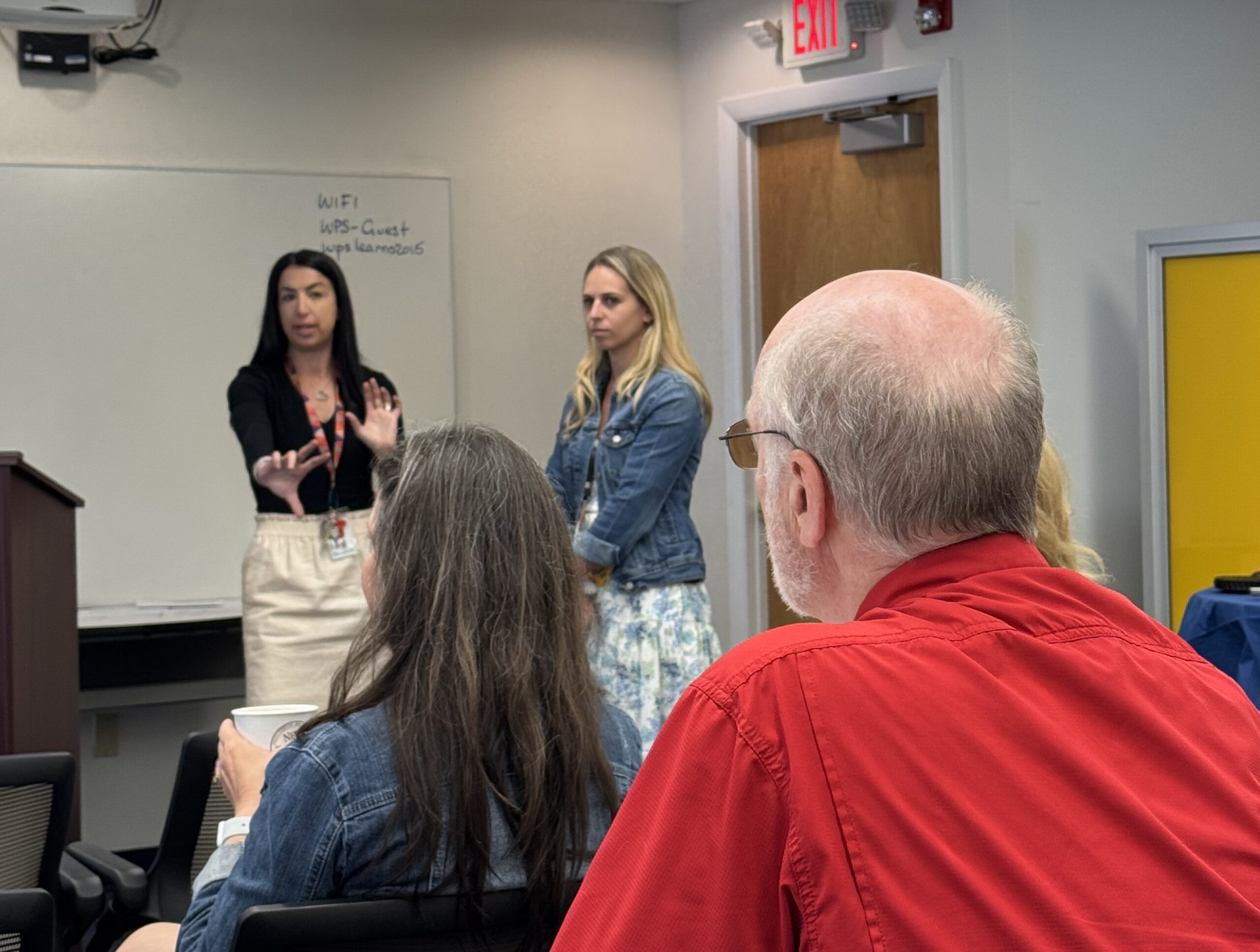
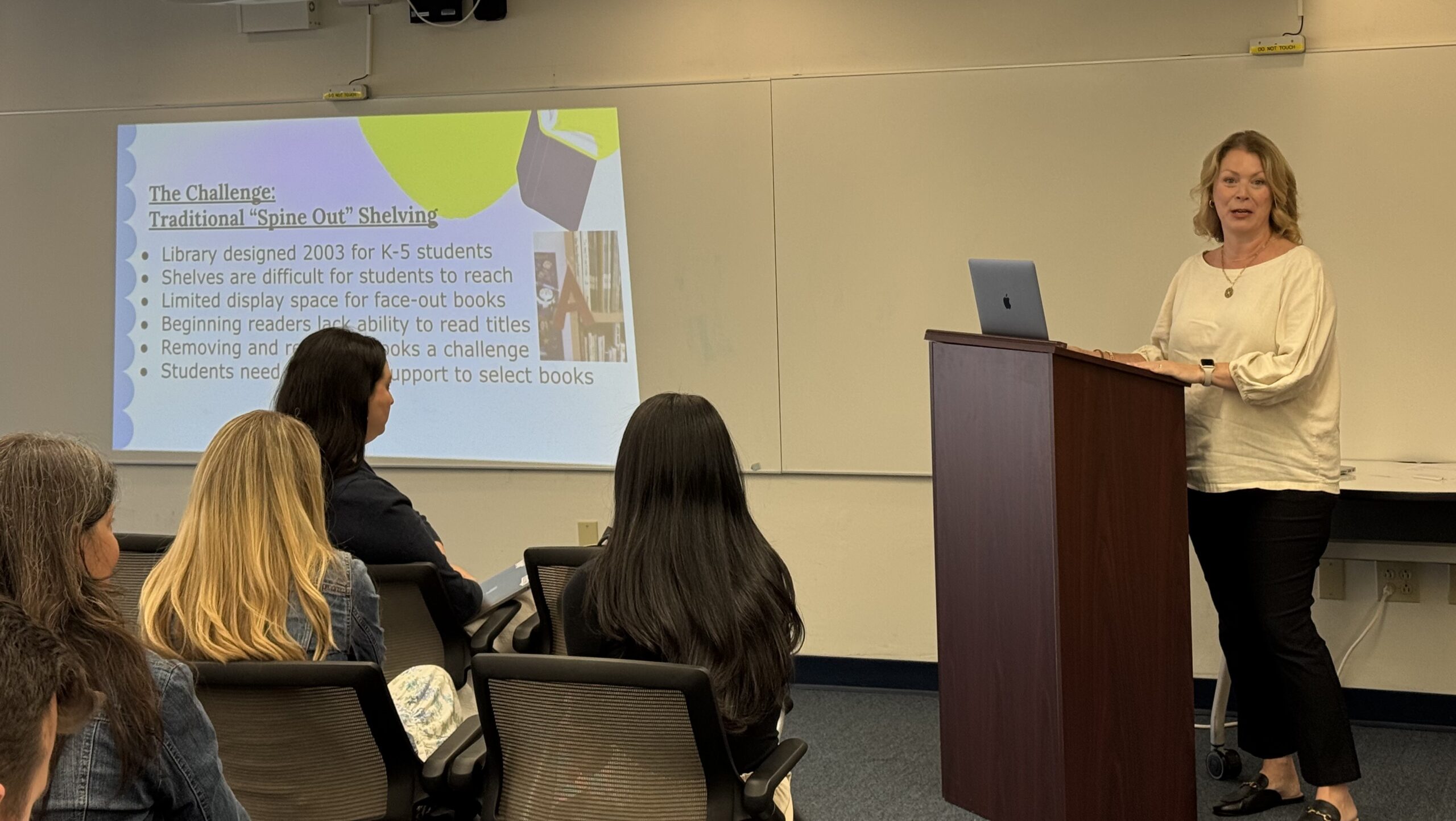
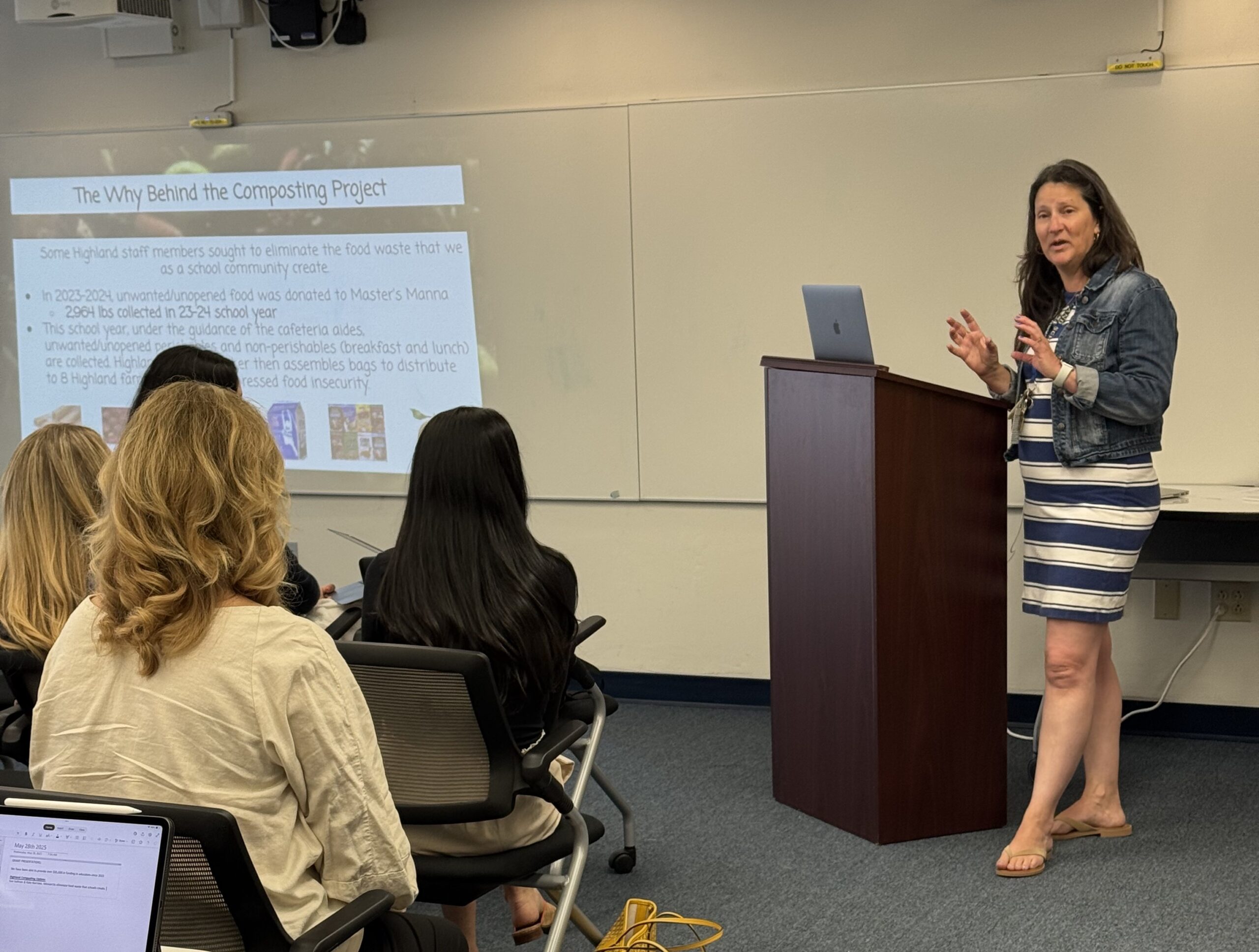
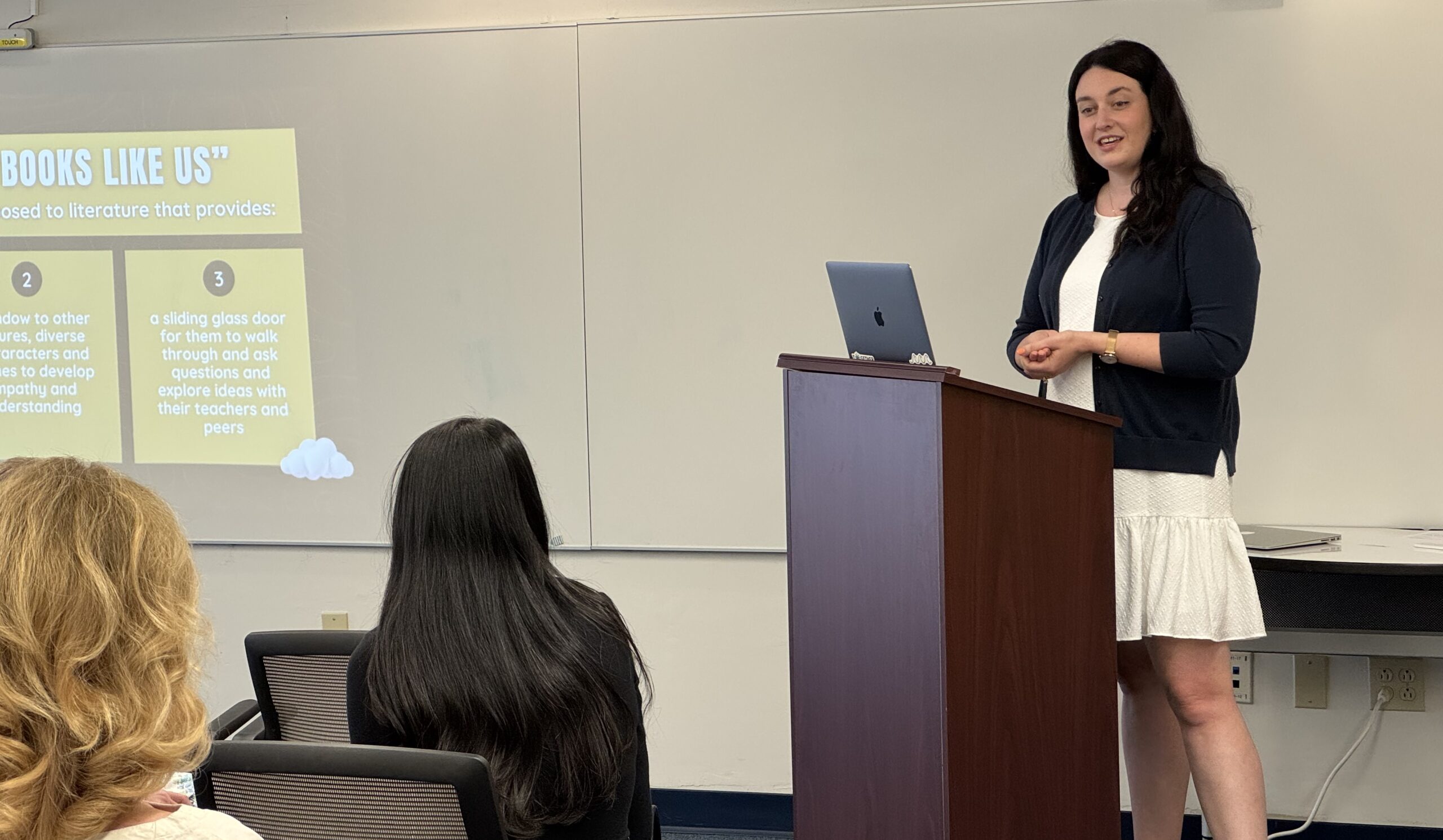
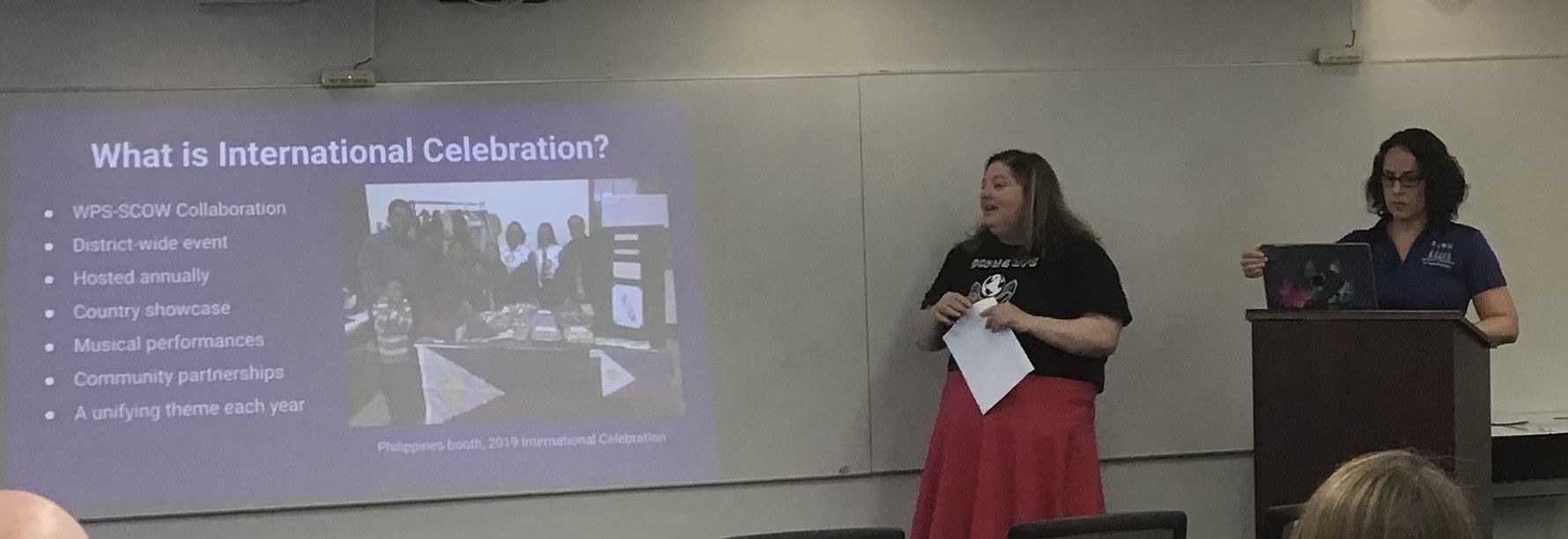
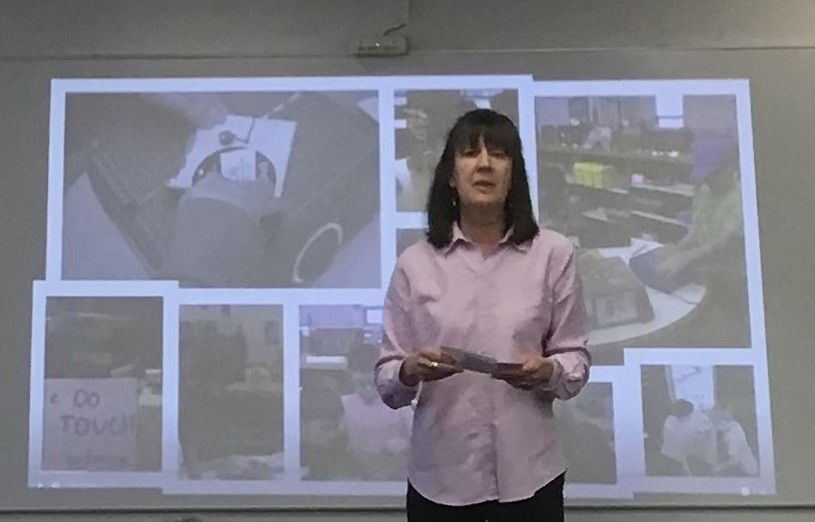
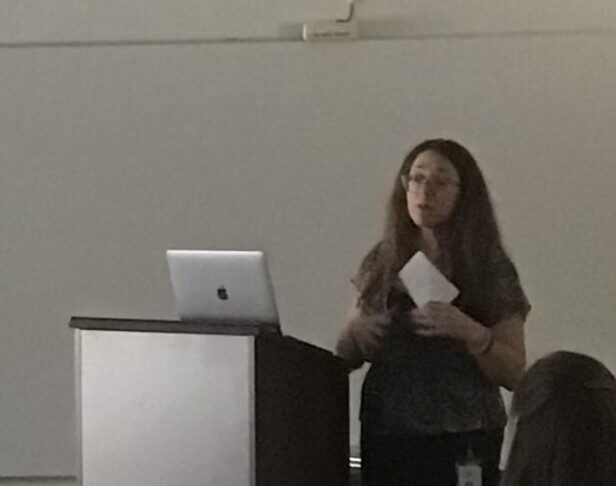
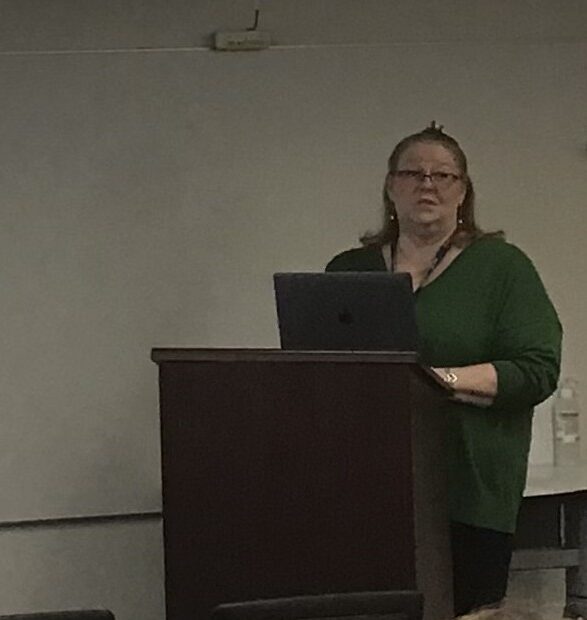
Tracey Moses
Wallingford Adult Education
